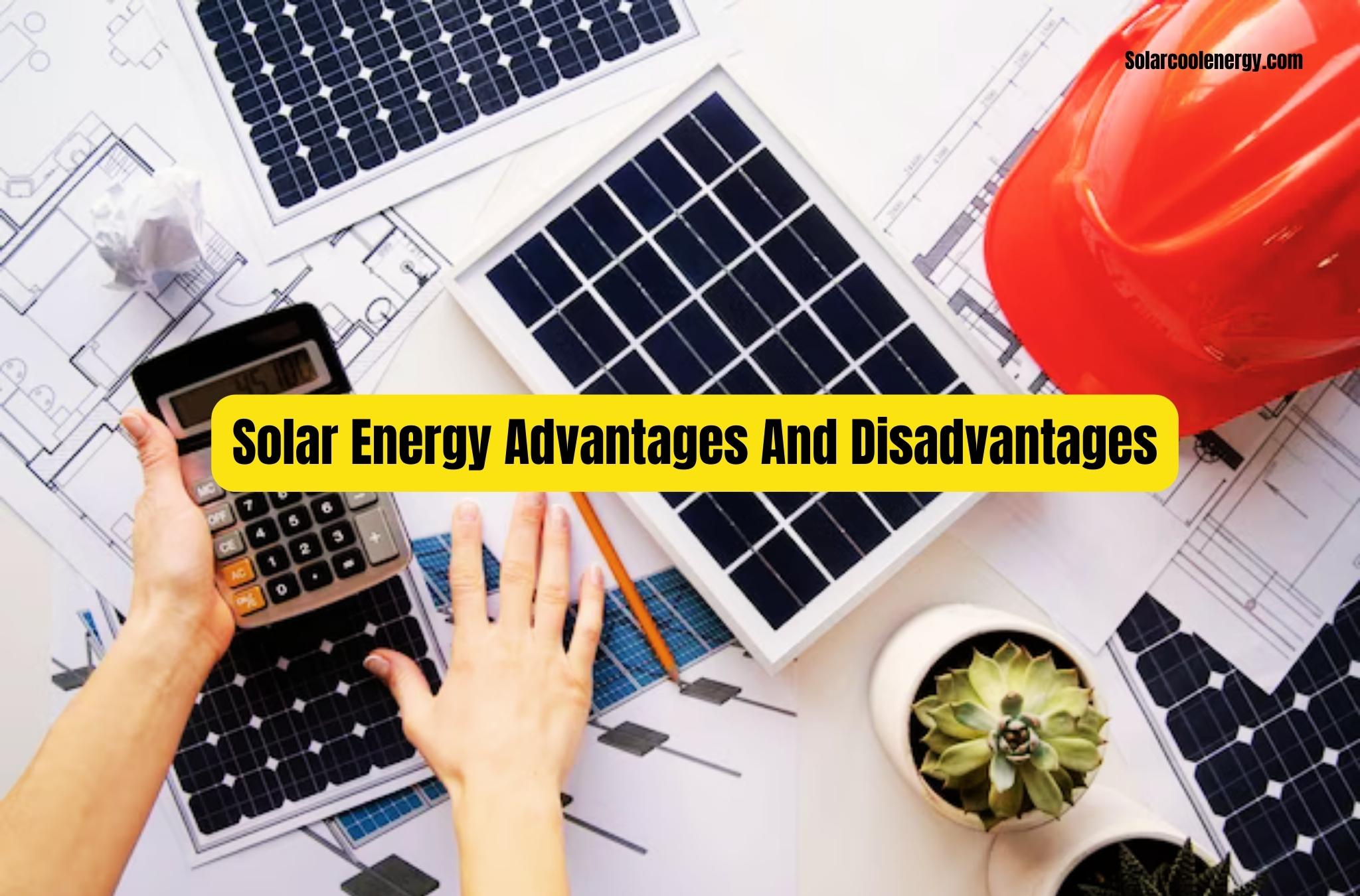Solar energy has several The Solar Energy Advantages And Disadvantages. On the positive side, it reduces electricity bills, has diverse applications, and has low maintenance costs.
However, it is weather dependent, the storage of solar energy is expensive, and it requires a lot of space. Despite these limitations, solar energy is a renewable and inexhaustible energy source that is sustainable, creates local wealth and jobs, and is environmentally friendly as it produces no greenhouse gases.
It also offers a return on investment and is increasingly being adopted by households and businesses. As technology advances, the disadvantages of solar energy, such as high upfront costs and intermittent nature, are being addressed, making it a promising alternative energy solution.
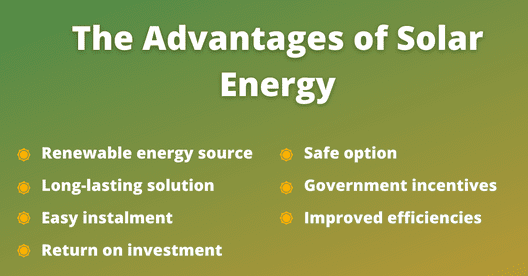
Credit: captaingreen.com.au
Advantages Of Solar Energy
Solar energy offers several advantages in terms of reducing electricity bills, low maintenance costs, and diverse applications. However, it is weather-dependent and requires a large amount of space. Despite these disadvantages, solar energy is a renewable and sustainable source of power that helps reduce pollution and dependence on fossil fuels.
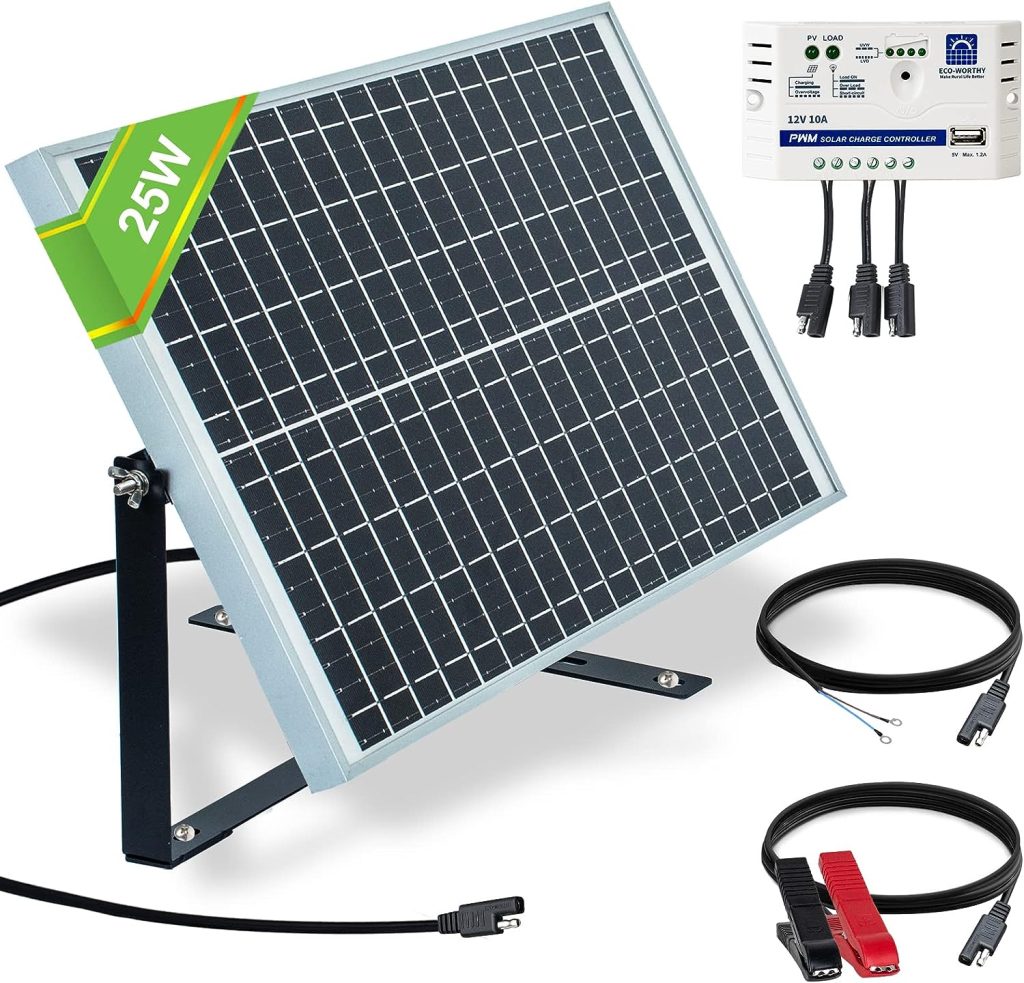
Renewable and inexhaustible energy source
Solar energy is an energy source that is both renewable and inexhaustible. Unlike fossil fuels which are finite and can be depleted, the sun continuously provides us with sunlight, making solar energy an abundant and everlasting power source.
Abundant sunlight availability
One of the greatest advantages of solar energy is that sunlight is available everywhere. Regardless of geographical location, almost every corner of the planet receives sunlight, making solar energy accessible to all.
Suitable for battery storage and electricity grid
Solar energy is highly suitable for battery storage and can be integrated with the electricity grid. By harnessing solar power during the day and storing it in batteries, individuals and businesses can access electricity even during the night or in cloudy weather. Additionally, excess solar energy can be fed back into the grid, contributing to the overall energy supply.
Local economic growth and job creation
The sun creates local wealth and jobs. The installation and maintenance of solar panels and associated equipment require skilled labor, providing opportunities for job creation in the renewable energy sector. Moreover, investing in solar energy stimulates local economic growth and reduces dependence on foreign energy sources.
Technological versatility
Solar energy can be utilized in a variety of ways. It can be converted into electricity through photovoltaic (PV) panels, used for heating purposes through solar thermal systems, and even integrated into building materials such as solar roof tiles. This versatility makes solar energy adaptable to different needs and applications.
Minimal maintenance required
Solar energy systems require minimal maintenance. Once installed, solar panels have no moving parts, reducing the risk of mechanical failure. Routine cleaning to remove dust and debris is usually sufficient to maintain optimal performance. This not only saves time and effort but also minimizes maintenance costs.
Environmentally-friendly throughout its lifespan
Solar energy is not only clean during operation but also throughout its lifespan. Solar power is pollution-free and does not emit any greenhouse gases after installation. Using solar energy helps combat climate change, reduces air pollution, and supports a sustainable and environmentally-friendly future.
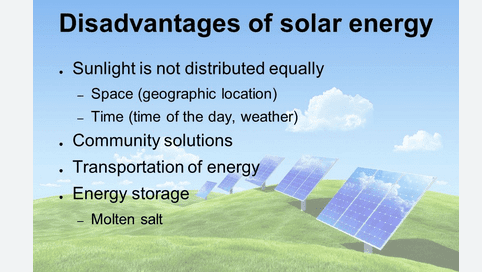
Credit: slideplayer.com
Disadvantages Of Solar Energy
Solar Energy has numerous advantages, such as reducing electricity bills, diverse applications, and low maintenance costs. However, it also has disadvantages, including being weather dependent, requiring a lot of space, and expensive solar energy storage. Additionally, it is associated with the development of technology and certain types of pollution.
High upfront investment costs
One of the main challenges of solar energy is the high upfront investment costs. While the long-term savings on electricity bills can be significant, the initial expense of purchasing and installing solar panels can be a barrier for many homeowners and businesses. The cost of solar panels has decreased over the years, but it still requires a significant financial commitment upfront.
Dependency on sunlight availability
Solar energy is dependent on sunlight availability, which means it may not be as reliable in areas with limited sunlight or during periods of cloudy weather. This dependency on weather conditions can result in fluctuations in energy production, making solar energy less consistent compared to traditional power sources. However, advancements in battery storage technology and grid integration have improved the reliability of solar energy systems to a certain extent.
Installation challenges for certain locations
Installation of solar panels may pose challenges for certain locations. Factors such as roof orientation, shading, and structural integrity of the building can affect the feasibility and efficiency of solar panel installation. In some cases, additional structural modifications or specialized mounting systems may be required, adding complexity and cost to the installation process.
Space constraints for solar panel placement
Solar panels are quite space-intensive to set up. This can be a limitation, especially for urban areas with limited rooftop space or for properties with complex architectural designs. Additionally, larger solar energy systems may require a considerable amount of land for installation, which may not be feasible in densely populated areas or where land availability is limited.
Expensive solar energy storage options
Although solar energy is a great renewable energy source during daylight hours, it is challenging to store excess energy generated for use during non-sunny periods. Battery storage systems can provide a solution, allowing for energy storage and usage during nighttime or cloudy days, but they can be expensive. The cost of battery technology continues to decrease over time, but it is still a significant investment for many homeowners and businesses.
Requires a significant amount of space
Another disadvantage of solar energy is that it requires a significant amount of space for installation. Large-scale solar power plants often require vast areas of land, which may lead to conflicts with land use for other purposes. Moreover, residential installations need sufficient roof space to accommodate an adequate number of solar panels, which may not be available for everyone.
Technological advancements needed
While solar energy has made significant progress in recent years, there is still a need for further technological advancements. Improvements in efficiency, storage capacity, and integration with the existing power grid are areas that require continuous research and development. However, ongoing innovation and investment in solar energy technologies are driving improvements, making solar energy a more viable option for the future.
In conclusion, while solar energy has numerous advantages, it is essential to consider the disadvantages as well. The high upfront costs, dependency on sunlight availability, installation challenges, space constraints, expensive storage options, space requirements, and the need for continued technological advancements are factors that may impact the adoption and effectiveness of solar energy systems. However, with ongoing advancements and increased awareness, solar energy continues to play a significant role in transitioning towards a more sustainable and renewable future.
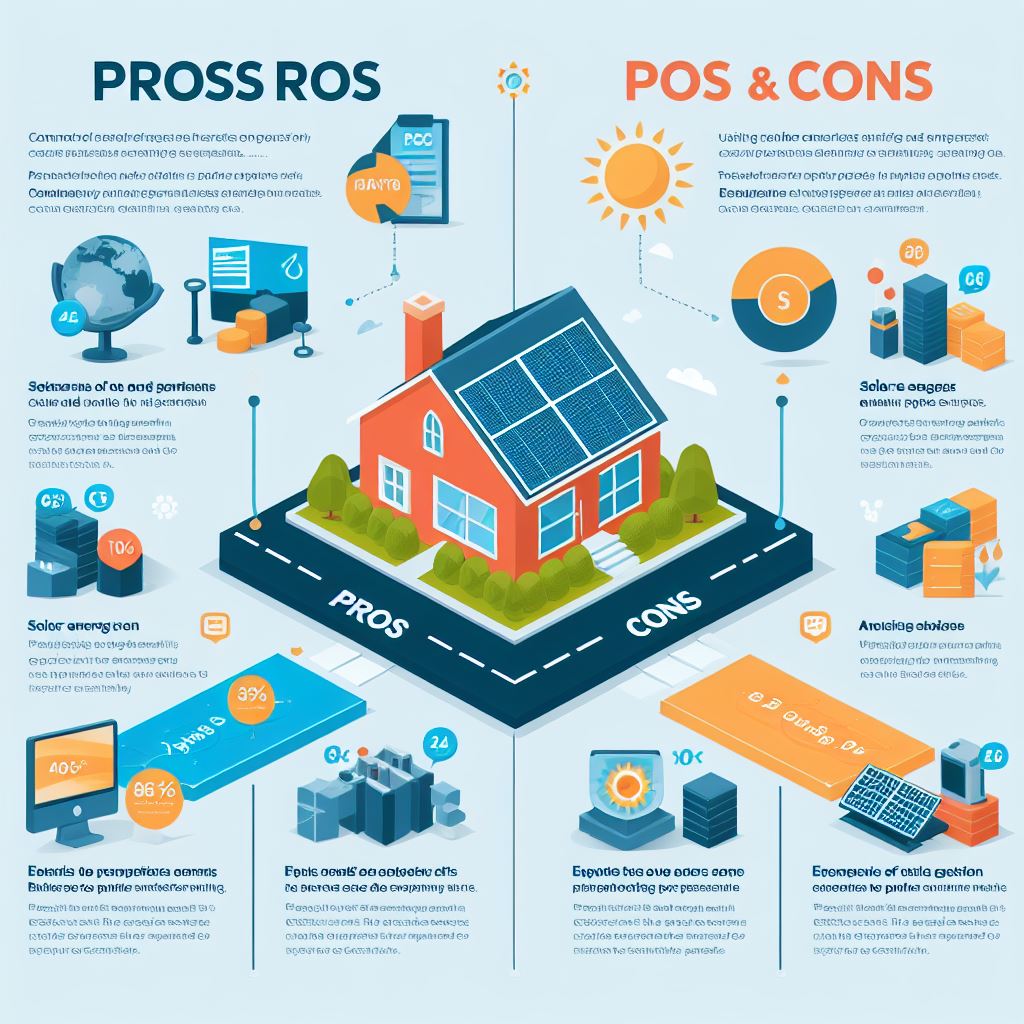
FAQs Of Solar Energy Advantages And Disadvantages
What Are 5 Advantages Of Solar Energy?
Advantages of solar energy include renewable and inexhaustible source, abundant sunlight everywhere, well-suited for batteries and grid, creates local wealth and jobs, and technological versatility. It requires minimal maintenance and is green until the end of life.
What Are 10 Disadvantages Of Solar Energy?
- High upfront investment costs. 2. Dependence on sunlight availability. 3. Expensive energy storage options. 4. Requires a significant amount of space. 5. Limited technology development. 6. Associated with pollution during manufacturing. 7. Difficult installation process. 8. Not suitable for every type of roof.
- Intermittent nature of energy production. 10. Manufacturing process has negative environmental impact.
What Are 4 Advantages Of Solar?
Solar energy has several advantages: it reduces electricity bills, has diverse applications, low maintenance costs, and promotes technological development.
What Are The Advantages And Benefits Of Solar Energy?
Solar energy is renewable, inexhaustible, and sustainable. It reduces electricity bills and has diverse applications. It requires low maintenance and creates local jobs. Solar power is pollution-free and reduces dependence on fossil fuels. It is available even on cloudy days, and offers a return on investment.
Conclusion
Solar energy offers numerous advantages, such as reducing electricity bills, diverse applications, and low maintenance costs. It is a renewable and sustainable energy source that is not dependent on foreign oil or fossil fuels. However, there are also a few disadvantages, including being weather dependent, requiring a lot of space, and having expensive energy storage.
Despite these drawbacks, the benefits of solar energy, such as minimal maintenance and its positive impact on the environment, outweigh the disadvantages. As technology continues to develop, the disadvantages can be minimized, making solar e

